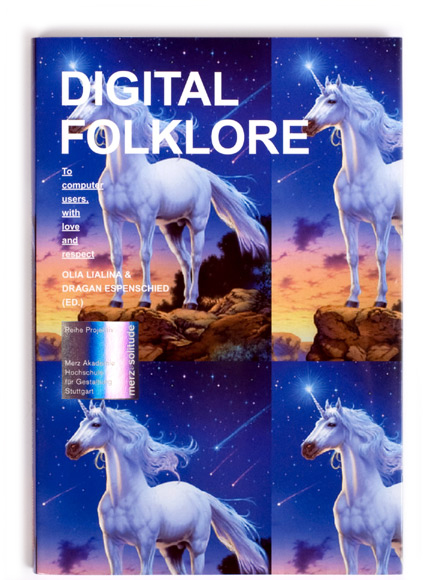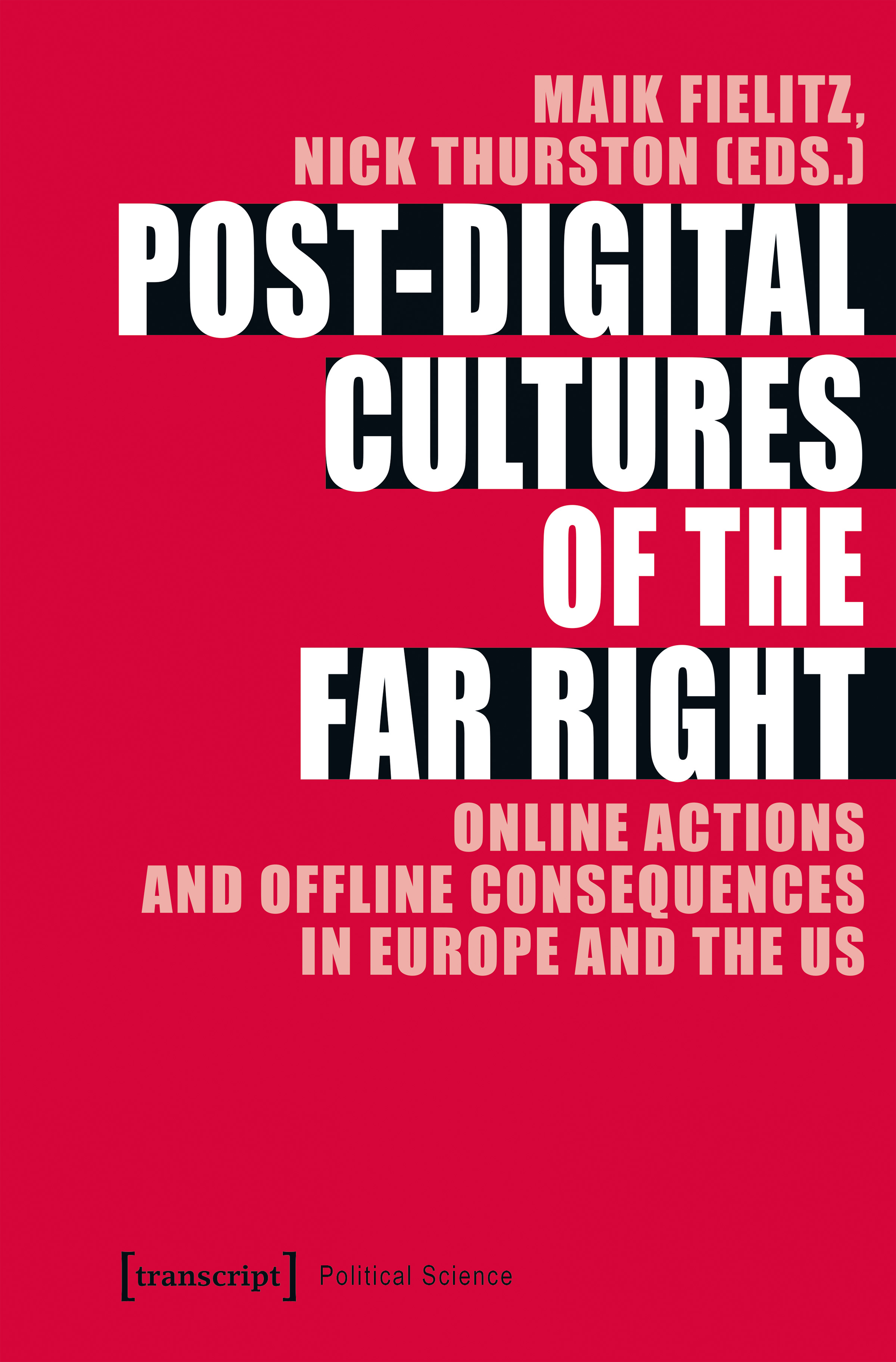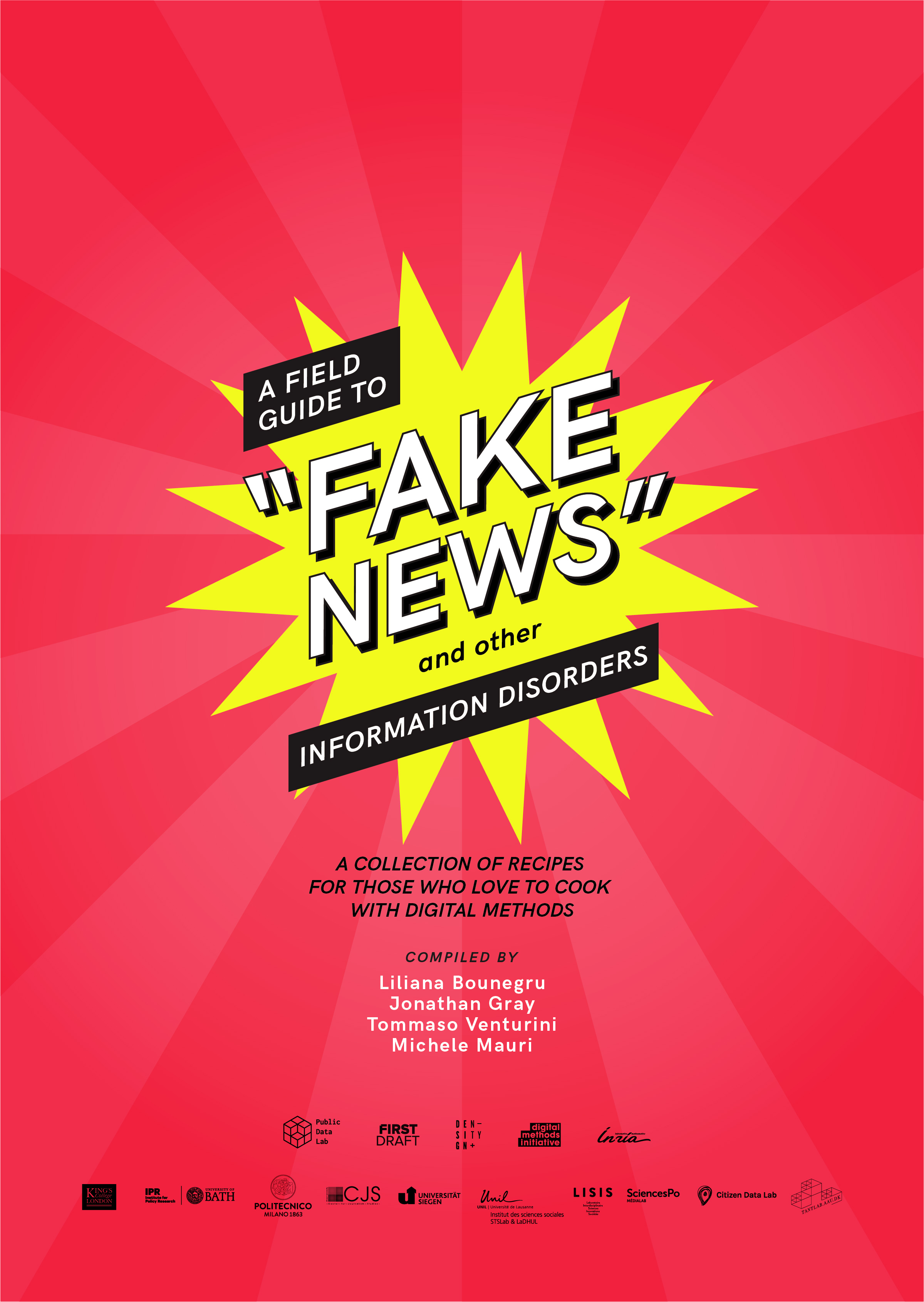Olia Lialina, Dragan Espenschied (eds.): Digital Folklore: To Computer Users, with Love and Respect (2009)
Filed under book | Tags: · amateur culture, folklore, internet, internet culture, media art, memes, net culture, network culture, web

“Technical innovations shape only a small part of computer and network culture. It doesn’t matter much who invented the microprocessor, the mouse, TCP/IP or the World Wide Web and what ideas were behind these inventions. What matters is who uses them. Only when users start to express themselves with these technical innovations do they truly become relevant to culture at large.
Users’ endeavors, like glittering star backgrounds, photos of cute kittens and rainbow gradients, are mostly derided as kitsch or in the most extreme cases, postulated as the end of culture itself. In fact this evolving vernacular, created by users for users, is the most important, beautiful and misunderstood language of new media.
As the first book of its kind, this reader contains essays and projects investigating many different facets of Digital Folklore: online amateur culture, DIY electronics, dirtstyle, typo-nihilism, memes, teapots, penis enlargement, …” (from the back cover)
Contributors: Cory Arcangel, Julia Böger, Manuel Buerger, Helene Dams, Dragan Espenschied, Jörg Frohnmayer, Mark Grimm, Christopher Heller, Yunchul Kim, Dennis Knopf, Stefan Krappitz, Florian Kröner, Tobias Leingruber, Olia Lialina, Leo Merz, Bernadette Neuroth, o+ro, johannes p osterhoff, Isabel Pettinato, Michael Ruß, Alexander Schlegel, Bert Schutzbach, Siegfried Zielinski.
Publisher Merz & Solitude (Merz Akademie & Akademie Schloss Solitude), Stuttgart, 2009
Reihe Projektiv series
Designer Manuel Buerger
ISBN 9783937982250, 3937982256
287 pages
Reviews: Pau Waelder (Furtherfield, 2010), Kevin McGarry (Rhizome, 2010), Regine Debatty (We Make Money Not Art, 2010), Alessandro Ludovico (Neural, 2010), Richard Schwarz (The Gap, 2010, DE), Marie Lechner (Libération, 2010, FR), Stefania Bercu (Masters of Media, 2010).
Book website
Publisher
WorldCat
PDF (27 MB)
Comment (0)Maik Fielitz, Nick Thurston (eds.): Post-Digital Cultures of the Far Right: Online Actions and Offline Consequences in Europe and the US (2018)
Filed under book | Tags: · alt-right, far right, internet, media, memes, political science, politics, postdigital, social media

“How have digital tools and networks transformed the far right’s strategies and transnational prospects? This volume presents a unique critical survey of the online and offline tactics, symbols and platforms that are strategically remixed by contemporary far-right groups in Europe and the US. It features thirteen accessible essays by an international range of expert scholars, policy advisors and activists who offer informed answers to a number of urgent practical and theoretical questions: How and why has the internet emboldened extreme nationalisms? What counter-cultural approaches should civil societies develop in response?”
Publisher transcript, Bielefeld, 2018
Political Science series, 71
Creative Commons BY-NC-ND 4.0 License
ISBN 9783837646702, 383764670X
208 pages
PDF, PDF (updated on 2023-7-31)
Comment (0)A Field Guide to “Fake News” and Other Information Disorders (2018)
Filed under book | Tags: · deception, fake news, internet, journalism, media, memes, politics, social media, trolling, truth, web

“This guide explores the use of digital methods to study false viral news, political memes, trolling practices and their social life online.
It responds to an increasing demand for understanding the interplay between digital platforms, misleading information, propaganda and viral content practices, and their influence on politics and public life in democratic societies.”
Compiled by Liliana Bounegru, Jonathan Gray, Tommaso Venturini, and Michele Mauri
Publisher Public Data Lab, January 2018
Creative Commons BY 4.0 License
211 pages

